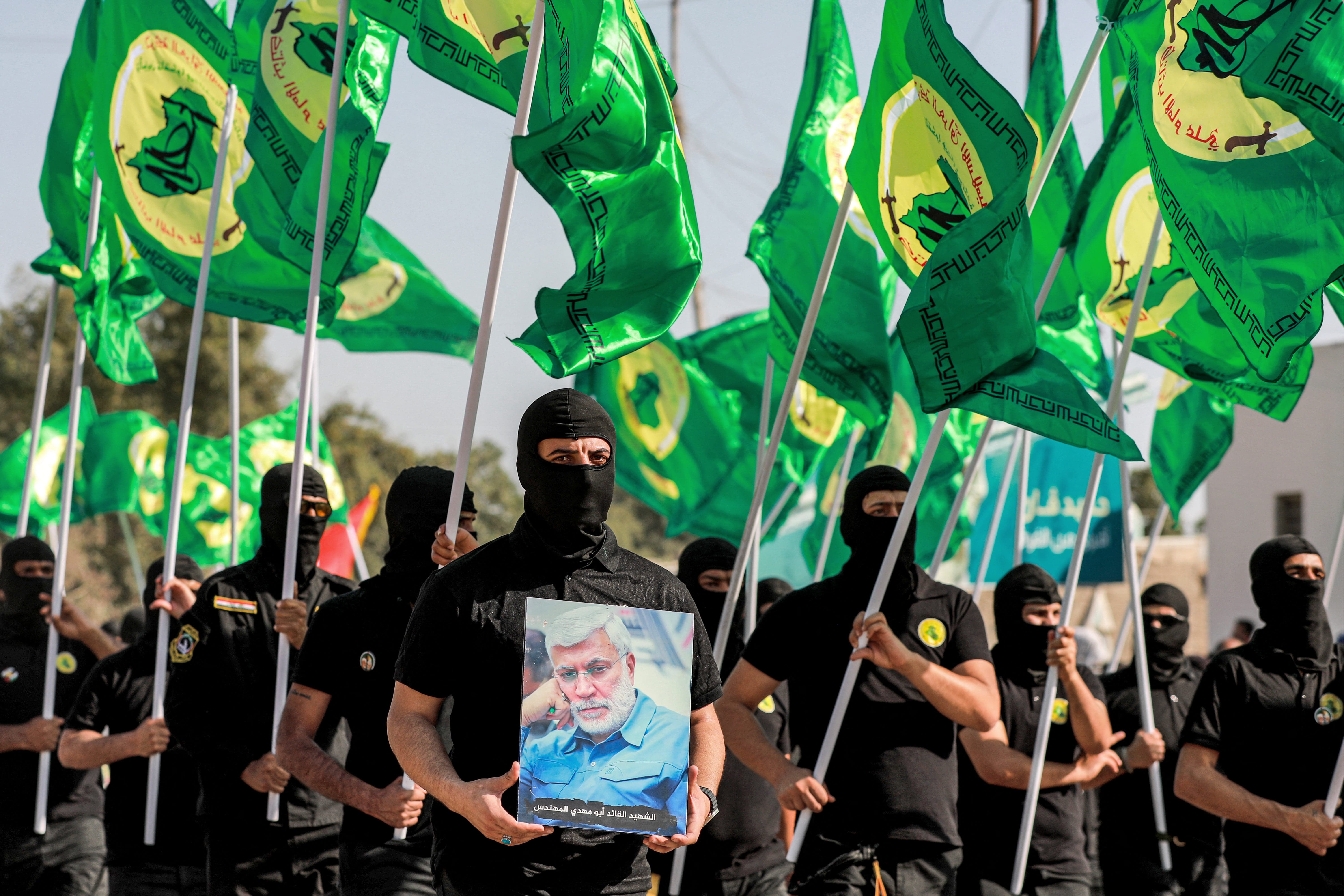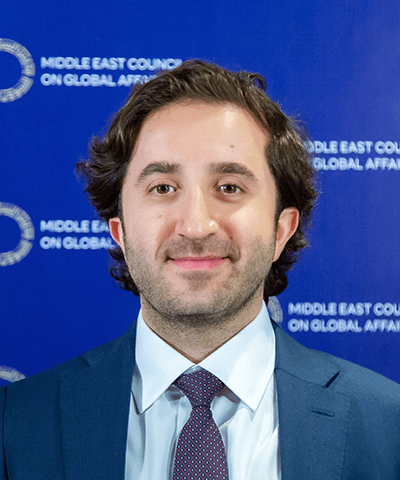Since the onset of the post-October 7 regional escalation, the ascension of militia groups has had increasingly visible implications for global security. This has been highlighted by the Houthi attacks in the Red Sea, which have had far-reaching consequences for the global economy. However, the Houthis—an armed political movement controlling most of Yemen—represent only one of several formidable, armed non-state actors that have transnational capabilities. These groups will continue to undermine global security until policymakers establish viable and sustainable measures for engaging them and addressing their malign conduct.
One policy approach has been Security Sector Reform (SSR), a process aimed at transforming the security environment to promote accountability, human rights, and the rule of law, principally by disarming and integrating fighters into state institutions. However, over the past two decades of tumult and conflict in the Middle East and North Africa, such processes have been frustrated by the emergence and consolidation of armed non-state actors as service and security providers. Such groups are increasingly occupying spaces where state institutions—including the conventional security apparatus, such as the military and police—have collapsed or weakened.
Rather than investing substantial time and resources on implementing SSR processes that are fraught with challenges, policymakers and practitioners could focus their efforts on conflict reprieve and humanitarian access. These are more realistic objectives that can constitute the basis for more comprehensive agreements centered on power-sharing, reconciliation and, fundamentally, respect for the rule of law.
Weakening States
The enervation of many Arab states since 2011 has paved the way for the proliferation of armed groups. Syria alone hosts large numbers of highly autonomous, armed non-state groups. Estimates suggest Iran-aligned forces in the country are comprised of 80,000 fighters, with many from some of Iran’s most formidable proxies, such as Hezbollah. In the northeast, the People’s Protection Units (YPG) fielded an estimated 30,000 to 65,000 fighters in 2016.
In other countries across the region, the picture is similar. Iraq hosts several armed groups: The Popular Mobilization Force (PMF), an umbrella organization combining dozens of Shia Islamist militia groups, had an estimated 152,000 officially registered fighters in 2019. In Libya, as of 2021, the 400,000 security personnel under various entities represent over six percent of the country’s population.
In such contexts, SSR sets out to integrate such groups and fighters into state institutions, such as the armed forces and the police. However, there is a dearth of success stories to illustrate the long-term viability of this approach. SSR is premised on the notion of a lasting peace once a conflict has abated or ended. However, achieving a lasting settlement requires its own process, one that involves several inter-connected dynamics and deliberations, including power-sharing arrangements, revenue-sharing, and constitutional negotiations, among others. In other words, SSR should only really come into play once a lasting settlement has been established.
More importantly, the second-order effects of conflicts are often understated—particularly the collective memories of injustice and repression they create, establishing the grievances and conditions for conflict relapse. These effects include economic inequalities and poverty. There is a strong link between poverty and the re-occurrence of conflict, especially in contexts with violent contestations over natural resources.
SSR processes, therefore, need to focus as much on the potential drivers of conflict—competition for natural resources, strategic infrastructure, and financial institutions—as they do on national reconciliation and political rivalries. Libya, for example, has two competing governments situated in the east and west of the country. Libya’s internationally recognized Government of National Accord (GNA) based in Tripoli is undermined by the self-governing region in the east, where Khalifa Haftar’s administration commands its own parliament, central bank, national oil company, and security services.
Additionally, the absence of guarantors and the failure to enforce political settlements and peace agreements both undermine SSR. A case in point is the war in Yemen and the 2018 Stockholm Agreement. Championed by Britain and America, the agreement compelled the Saudi-led coalition and the government of Yemen to withdraw their forces from the port city of Hodeida and end their campaign to re-capture the port from the Houthis, who had seized control in 2014. The agreement required both coalition forces and Houthi forces to withdraw, leaving a new joint security force in control of the port and the city. However, the Houthis simply replaced the withdrawn fighters with others dressed in coast guard and police uniforms. The agreement, therefore, provided a lifeline to the Houthis and paved the way for the group to expand its presence along the southern Red Sea. It also rendered several other important provisions of the agreement futile, such as prisoner-swaps, revenue sharing, and commitments to humanitarian access.
The Futility of SSR
These cases illustrate the fragile conditions under which SSR is often attempted. Premised on state-centric modalities, it is often perceived of as a threat to the armed groups it seeks to demobilize and integrate into the state, especially where rival factions have taken control of the most powerful institutions. As a result, armed non-state actors have attempted to erode or co-opt these institutions according to their own political interests. Those that fail often resist and contest the state; those that succeed—such as the PMF in Iraq—are likely to maintain their autonomy while keeping one foot within the state.
This means groups like the PMF in Iraq are unlikely to ever truly integrate their forces or allow them to be subjected to civilian oversight. They can continue to claim the benefits of being a formal member of the armed forces without submitting fully to state authority. These benefits include access to the state budget, constitutional legitimacy, and legal protections that limit the group’s exposure to punitive measures, such as sanctions and proscriptions.
A critical driver of hybrid security environments is the patronage of external actors. In Iraq and Libya, for example, owing to a combination of security crises that required urgent action and the resulting dependency on sub-state militia groups to intervene, the state has directly financed and supplied arms to militia groups. As such, in the name of suppressing refugee flows, the European Union supported Libyan militias. Similarly, U.S. arms ended up in the hands of Shia militias in Iraq that it had designated as terrorist organizations.
In some cases, sponsor-proxy ties develop out of an urgent need to protect communities who would otherwise face violent subjugation and repression. For some, militias represent the only hope of providing security, given the poor track-record of the military and deep-rooted mistrust toward corrupt security institutions. These proxy-sponsor dynamics must be addressed in tandem with domestic attempts to curtail armed groups, suppress their malign conduct, and impose the rule of law.
Critically, policymakers and practitioners can better allocate SSR resources towards programs focused on conflict reprieve and humanitarian aid. Rather than attempting to convince militia groups to give up their arms and submit to the authority of the state, which is not perceived as a neutral actor, the focus should be on mechanisms to prevent conflict relapse. These should include facilitating humanitarian aid delivery, ensuring the payment of public sector salaries, and protecting vital economic infrastructure.
The “ask” here is far less onerous than calling on militias to accept SSR at face value, not least since SSR is not ideologically neutral and is often perceived as a Western tool of control. Ultimately, shifting focus to more pragmatic goals will provide a foundation for sustainable and viable agreements.
The opinions expressed in this article are those of the author and do not necessarily reflect the views of the Middle East Council on Global Affairs.

